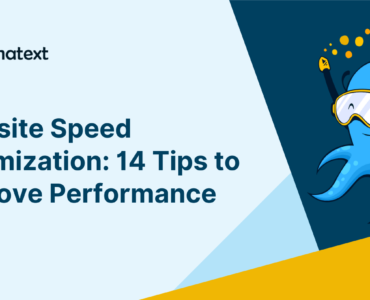Mobile-First Indexing and SEO Optimization: Adapting to the Mobile-Driven World
In the digital age, the way people access the internet has undergone a significant shift. With the proliferation of smartphones and tablets, mobile devices have become the primary means for users to browse the web.
In response to this trend, search engines like Google have introduced mobile-first indexing as a crucial ranking factor.
Understanding mobile-first indexing and optimizing your website for mobile is no longer an option; it’s a necessity for success in the world of SEO (Search Engine Optimization).
What is Mobile-First Indexing?
Traditionally, Google and other search engines primarily used the desktop version of a website’s content to determine its ranking in search results.
However, with mobile usage surpassing desktop usage, Google introduced mobile-first indexing. This means that Google now predominantly uses the mobile version of a website for indexing and ranking.
In practical terms, this change implies that your website’s mobile version is now the starting point for Googlebot when it crawls and indexes your site. If your website is not mobile-friendly or lacks essential mobile optimization, you risk losing visibility in search results.
Why Mobile-First Indexing Matters
1. Mobile Users are Dominant
The sheer number of mobile users makes mobile-first indexing vital. More people are accessing websites via mobile devices, and Google’s goal is to deliver the best user experience to its searchers.
2. Ranking Impact
Failure to optimize for mobile can harm your website’s ranking. If Google encounters issues with your mobile version, it may negatively affect your site’s search engine ranking.
3. User Experience
Mobile optimization isn’t just about pleasing search engines; it’s about enhancing the user experience. Mobile-friendly sites load faster, have intuitive navigation, and provide a better overall experience for visitors.
How to Optimize for Mobile-First Indexing
Now that you understand the importance of mobile-first indexing, let’s explore how to optimize your website for mobile:
1. Responsive Web Design
Ensure your website design is responsive, meaning it adapts seamlessly to various screen sizes and devices. This approach eliminates the need for a separate mobile site and ensures a consistent user experience.
2. Mobile-Friendly Content
Optimize your content for mobile reading. Use concise paragraphs, clear headings, and legible fonts. Ensure that images and videos are appropriately sized and compressed for faster loading times on mobile devices.
3. Page Speed Optimization
Mobile users are often on slower internet connections. To cater to them, optimize your website’s speed by reducing image sizes, leveraging browser caching, and minimizing server response times.
4. Structured Data
Implement structured data (schema markup) to help search engines understand your content better. This can enhance your chances of appearing in rich snippets and other mobile-specific search features.
5. Mobile SEO Tools
Use tools like Google’s Mobile-Friendly Test and PageSpeed Insights to evaluate your website’s mobile performance and get suggestions for improvement.
6. User Testing
Regularly test your website on various mobile devices to ensure that the user experience remains smooth and glitch-free.
Conclusion
Mobile-first indexing is a fundamental shift in the world of SEO. To succeed in the mobile-driven world, your website must be optimized for mobile devices.
Embrace responsive design, focus on user experience, and continually monitor and improve your site’s mobile performance.
By doing so, you’ll not only please search engines but also provide a better experience for your mobile visitors, ultimately leading to improved rankings and increased traffic.
Related Posts
Recent Posts
- Optimizing Images for SEO and Page Speed: Boost Your Website’s Performance!
- Seo for Local Businesses Step-By-Step Guide: Boost Your Online Success Today!
- The Role of Content Clusters in Modern SEO: Boost Your Rankings
- Supercharge Your SEO Success with High-Quality Backlinks
- Impact of User Experience on SEO Rankings: Boost Your Website’s Performance
Recent Comments
Archives
Categories
Categories
- Blog(40)
- Local SEO(1)
- On-Page SEO(1)
- SEO(7)
- SEO Optimization(1)





